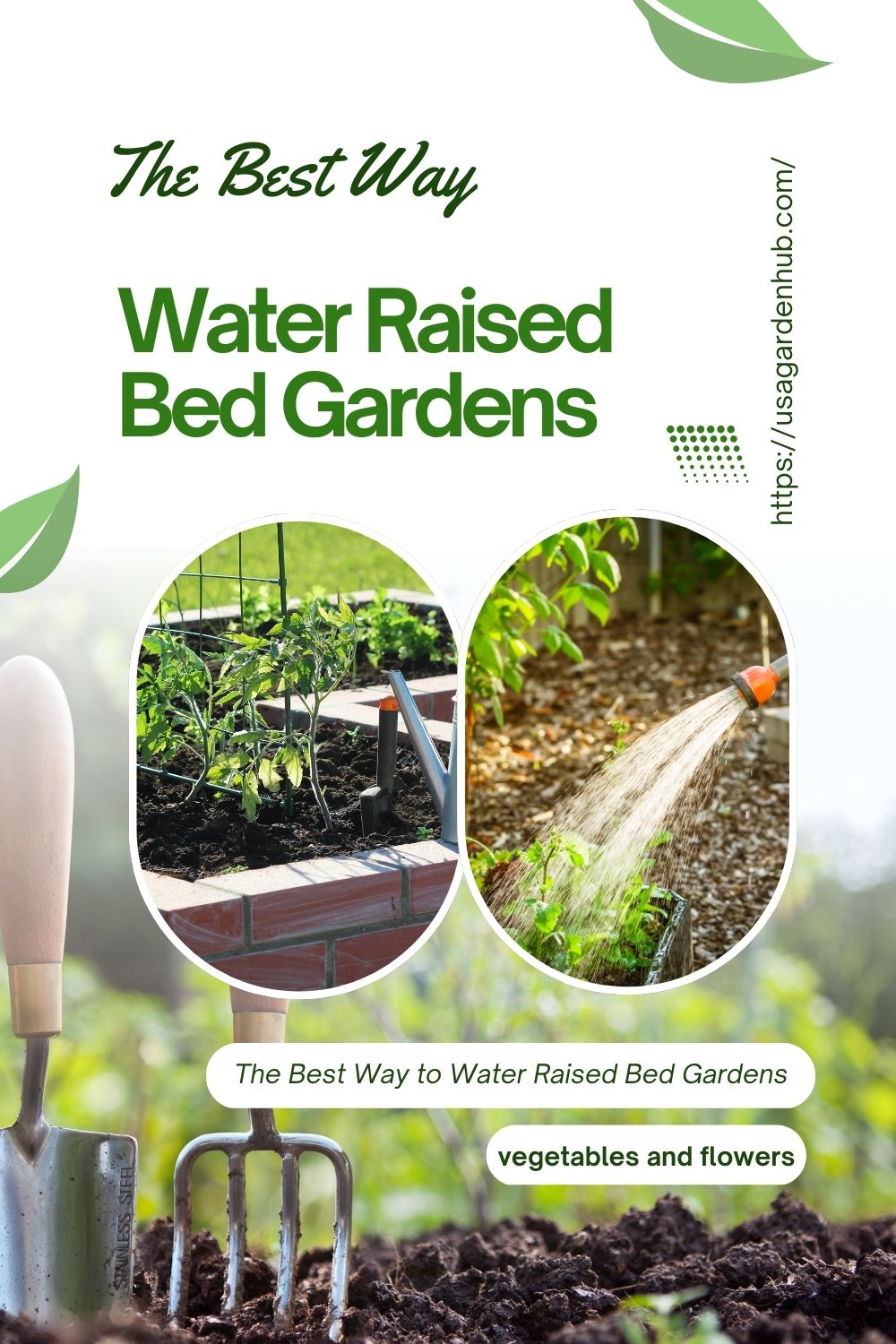Learn the optimal techniques for watering raised bed gardens from an experienced gardener. Discover water-saving tips, best practices, and common mistakes to avoid for thriving vegetables and flowers.
The best way to** water raised bed gardens** is to water deeply and less frequently, applying water directly to the soil early in the morning. Use drip irrigation or soaker hoses for consistent moisture, aiming for 1-1.5 inches of water per week, adjusting based on weather conditions and plant needs.
As a gardener with over 15 years of experience maintaining raised beds, I’ve learned that proper watering is the cornerstone of a thriving garden. Let me guide you through everything you need to know about keeping your raised beds perfectly hydrated.
Why Proper Watering Matters in Raised Beds

Raised bed gardens have unique watering needs compared to traditional garden plots:
- Better drainage means more frequent watering may be necessary
- Higher soil temperatures can lead to faster evaporation
- Intensive planting requires careful moisture management
Essential Watering Techniques
1. Timing Is Everything
The optimal time to water your raised beds is early morning, ideally between 6 AM and 9 AM. This timing:
- Reduces evaporation loss
- Allows plants to dry before evening
- Minimizes disease risk
- Prepares plants for the day’s heat
2. Watering Methods
Choose the right watering method for efficient irrigation:
3. Drip Irrigation
- Pros:
Consistent water delivery
- Water conservation
- Automated operation
- Cons:
Initial setup cost
- Maintenance required
4.Soaker Hoses
- Pros:
Affordable
- Easy to install
- Even water distribution
- Cons:
Less precise than drip systems
- May need replacement more often
5. Hand Watering
- Pros:
Precise control
- No equipment needed
- Connection with your garden
- Cons:
Time-consuming
- Less consistent
/hemerocallis-coit-tower-2/
How Much Water Do Raised Beds Need?
Signs of Improper Watering
The general rule is 1-1.5 inches of water per week, but this varies based on:
- Climate and weather conditions
- Soil composition
- Plant types and growth stages
- Season
Overwatering Symptoms
- Yellowing leaves
- Fungal growth
- Soil always feels wet
- Root rot
Underwatering Symptoms
- Wilting despite moist soil
- Dry, cracking soil
- Stunted growth
- Leaf drop
Advanced Watering Tips
- Mulch Matters: Apply 2-3 inches of organic mulch to:
Retain moisture
- Reduce evaporation
- Suppress weeds
- Soil Amendments:
Add compost to improve water retention
- Consider water-retaining crystals for extreme conditions
- Group Plants by Water Needs:
Create hydrozones
- Maximize watering efficiency
Seasonal Watering Adjustments
Spring
- Monitor soil moisture as temperatures rise
- Be prepared for inconsistent rainfall
Summer
- Increase watering frequency during heat waves
- Water deeply to encourage deep root growth
Fall
- Reduce watering as temperatures cool
- Prepare for winter by ensuring good drainage
Winter
- Minimal watering needed
- Monitor winter vegetables if growing
/azalea-flower-meaning/
Common Watering Mistakes to Avoid
- Overwatering newly planted beds
- Watering too frequently and shallowly
- Ignoring weather conditions
- Not adjusting for different plant needs
Tools and Technology
Essential Tools
- Moisture meter
- Rain gauge
- Timer for irrigation systems
- Watering wand for hand watering
Smart Garden Technology
- Smart irrigation controllers
- Soil moisture sensors
- Weather-based watering systems
Related Topics and External Resources
- Companion Planting in Raised Beds
- Best Soil Composition for Raised Gardens
- Seasonal Planting Guide
- Organic Pest Control Methods
/vegetables-to-plant-in-october-zone-9/
Troubleshooting Common Issues
ProblemPossible CauseSolutionUneven GrowthInconsistent WateringInstall drip irrigationBlossom End RotCalcium Uptake IssuesMaintain consistent moisturePowdery MildewWet FoliageWater at soil level
Remember, successful gardening is about observation and adaptation. While these guidelines provide a strong foundation, your specific garden may need adjustments based on your unique conditions.
Do you have questions about watering your raised bed garden? Feel free to ask in the comments below!
For more gardening tips and plant care guides, visit usagardenhub.com
